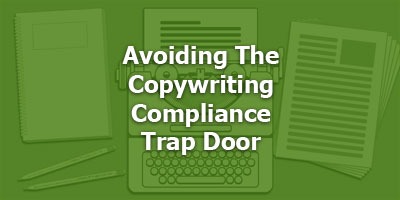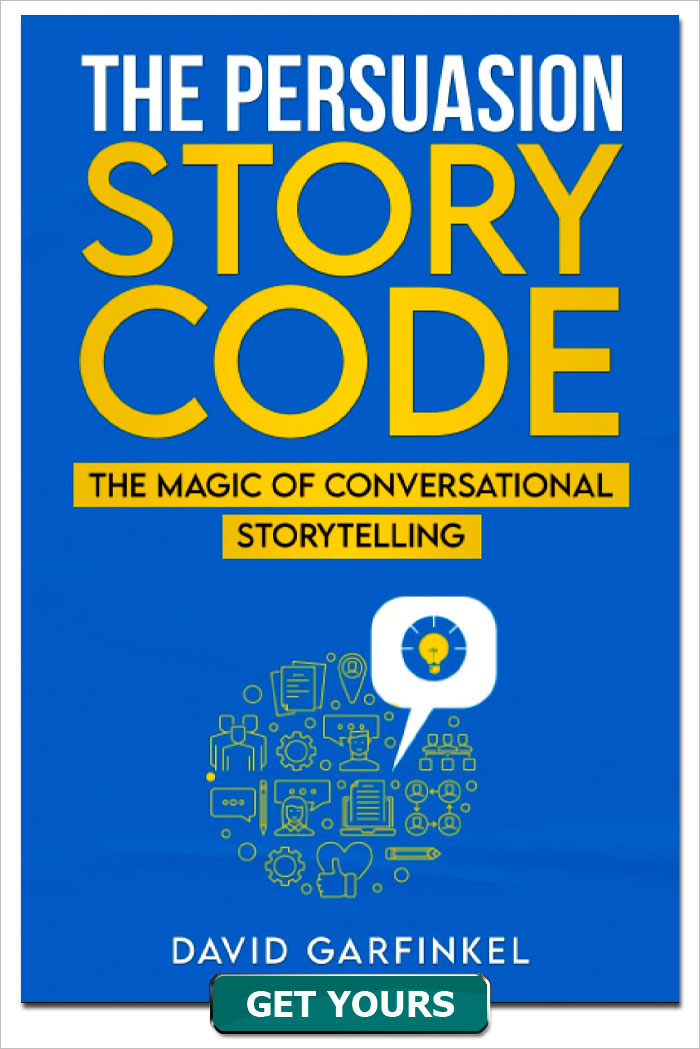Avoiding The Copywriting Compliance Trap Door
Published by: David Garfinkel on 12-14-2020
Tweet
There’s one word keeps popping up this year when I’m talking to copywriters, and that word is “compliance.”
If you don’t get the gist of what this means and what to do about it, you can get your ads shut down in a heartbeat. In fact, your whole ad account. This happens more often than you think.
But if you navigate the compliance maze successfully, you have a real advantage. In some cases, you will be able to sell where you competitors can’t. And of course there’s a lot of money to be made when you do paid advertising right.
I wanted to take one show to talk about this. I’m not the world’s expert on compliance myself but I’ve helped others make their copy compliant nonetheless. We talk about that and how you can take steps to avoid problems in this area.
What I am and what I am not, as far as copy compliance goes:
First, I’m not a walking encyclopedia on copy compliance rules and regulations. That might be one reason I suggest everyone with a big promotion get a legal review before they launch. I have a working knowledge of compliance, but things change all the time.
What I am is: pretty good, when I’m presented with some copy and a clear reading of the rules, as my client understands them, at two things:
- Reworking copy to give it the maximum shot at success within those rules, or
- Finding a workaround that works and will keep them out of trouble.
Now, let’s talk about compliance and reasons for it. Then I’ll give you some things you can do to keep from really stepping in it.
Your reason is probably to stay out of Facebook jail or an official government jail. Believe me, there are all kinds of charges that can be made against someone for false advertising if a prosecutor wants to make them.
From the point of view of the people seeking your compliance:
It used to be the only compliance you had to worry about was with the Feds and the states, and this usually had to do with scamming people.
These days, it’s more complicated:
Google, like a newspaper publisher of old, makes money primarily by selling ads within an environment of factual credibility. Whether you agree that’s the case or not, that’s usually how they see it. So… any ads that go against their notion of factual credibility -- like saying you have the fastest weight-loss system in both the known and unknown universes -- would be out of compliance. For, among other things, using a superlative -- “fastest.”
Facebook is like a TV network, where they are letting you advertise so long as you can keep the entertainment ton consistent with the environment they believe they are creating and maintaining. So a lot of things direct-marketing advertisers normally do, “don’t fit” in the Facebook environment.
That’s how I see it, in terms of themes and intentions.
Now, the difference between a good hook and a really bad hook?
A good hook intrigues the prospect without giving away the whole story so your prospect has to read more to find out.
A really bad hook outright deceives the prospect and this opens you up to a world of hurt, sooner or later.
You can almost always find a way to make a good hook compliant.
A bad hook will rarely be compliant and even if you get away with it, you’ll still end up with a lot of unhappy customers, who feel ripped off. And they may come after you.
OK, that’s the background. In the show I detail five steps I use with clients to help them stay in compliance.
Keywords: facebook google regulators









